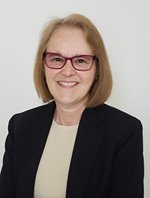Recently due to the Covid 19 pandemic, there has been an increase in financial scammers preying on older adults who have become more socially isolated, may lack technical savvy or may suffer from some cognitive decline.
Elder financial abuse is becoming an increasingly growing concern among our older generation. The accumulated wealth of this older generation places them at risk for financial abuse. They are frequently prime targets for scam artists, telemarketers, family members and others seeking to take large sums of money. You owe it to yourself and others to become fully aware of the signs of financial abuse.
All individuals have the right to personal freedom and autonomy when it comes to their personal affairs and decisions regarding their resources, finances, over all care and the services they choose to use. Well-being is something everyone strives for. This autonomy often creates a delicate balance that challenges both identification of any potential abuse occurring and prevention as well as prosecution when it does.
Comprehensive knowledge alleviates fraudulent practices and assists with the development of preventative practices and interventions all striving toward eliminating elder financial abuse. Let’s look at identifying the problem.
Leading signs of Elder Financial Abuse:
1. High degree of fear or submissiveness to caregivers and family members.
- The elder cowers or trembles when family discusses finances.
2. Isolation from stable family and community relationships.
- The elder is never alone or permitted to discuss finances on their own.
3. Anxiety about personal finances.
- The person worries a lot about paying bills, eating and running out of funds.
4. New “Best Friends”.
- The elder seems to be unseemly close to someone he/she has just met.
5. Lack of knowledge about financial status.
- The person becomes unaware of their money and financial situation.
6. Uncharacteristic nonpayment of services, bills and missing appointments.
- The person who is previously very prompt and timely now doesn’t show up for medical appointments and “forgets” to pay bills or is no longer reliable in many matters related to everyday living.
7. Sudden changes are made related to financial management and oversight.
- Power of Attorney documents etc., are suddenly changed to a “new friend”, new family member, or even a stranger.
Elder Financial Abuse can have long lasting and devastating effects on its victims and their families. It increases the risk of depression, decreases their quality of life and increases the unnecessary need for institutionalization. Elder financial abuse can impact this targeted generation by eradicating nearly all his/her financial resources. Unlike younger people, the older adult has little to no ability to recover losses over time due to inherent shortened life expectancies.
Financial losses limit choices for health care, day to day maintenance and other personal as well as social services needed to provide the quality of life the older adult may have grown accustomed to.
Preventing financial abuse is key to eradicating the growing crisis among our older adults. If you suspect financial abuse – report it. Successful prevention includes multiple strategies and working with your trusted financial organization is key.
Older adults can also take precautions and actions to ensure a successful prevention. Stay organized, stay informed and stay alert. These three actions are essential in lowering the risk of potential abuse.
Are you concerned that you or a loved one may be targeted for financial abuse? Are all the proper preventative measures in place? We here at Ledyard welcome your questions and would be happy to discuss with you or your loved ones how we might be able to assist you in protecting your financial resources and helping you achieve your goals.

Susan A. Winchester, ChFC®, CRPS
Senior Financial Advisor
susan.winchester@ledyardbank.com
Susan Winchester is a Senior Financial Advisor at Ledyard Financial Advisors. She has a Bachelor's Degree from Bridgeport University in Bridgeport, CT and her Master's Degree from Southern New Hampshire University, Manchester, NH. She received her Chartered Financial Consultant and Chartered Advisor for Senior Living professional designations from American College.
This communication is intended to be strictly informational. Exclusive of our client relationships, it is not intended to be, nor does it constitute an offer to sell or a solicitation of an offer to buy any securities referenced. Information contained herein has been obtained from sources that are believed to be reliable, but its accuracy and completeness cannot be warranted or guaranteed.
Non-deposit investment products are not insured by the FDIC, are not deposit or other obligations of, or guaranteed by the bank or any affiliate, and are subject to investment risk including the possible loss of principle amount invested.
Ledyard National Bank. All rights reserved.